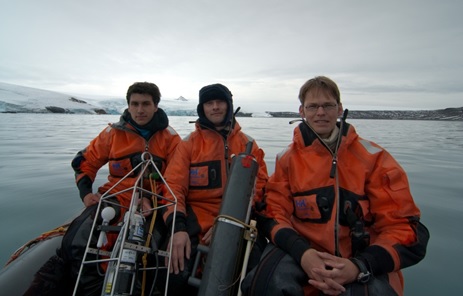Consequences of climate change for productivity and diversity of marine phytoplankton at King George Island, Antarctic Peninsula

Summary
This is a large, international (with German, Argentinean, Spanish, British partners), multidisciplinary project that addressed the effects of increased melt water input on coastal marine ecosystems at King George Island (KGI), Antarctica. The maritime Antarctic Peninsula region is subject to pronounced changes. Here, long term monitoring has revealed increased air and sea water temperatures, decreased sea ice coverage, decreased surface salinity and increased water turbidity, the latter related with enhanced input of terrigenous matter. The Northern Peninsula area around KGI is furthermore subject to altered atmospheric conditions, such as intensified low pressure systems and increased average wind speeds. It is highly uncertain how climate change affects the coastal primary producers around KGI, i.e. phytoplankton. This is partly due to the fact that extremely little is known about the composition, diversity and spatial and temporal variability of the primary producers. Within our subproject we obtained field samples in 2011 and 2012, in which primarily the impact of increased water column stability, turbidity and salinity on phytoplankton production and species composition were investigated, using a combination of classical and molecular techniques. The outcome of our field campaigns is envisioned to advance our understanding of the effects of climate change on the main drivers of the biogeochemical cycles in Antarctic coastal environments. As a result, IMCOAST will provide insight in possible climate change related impacts on higher trophic levels, including krill, fish, birds (including penguins) and whales.
(ESF-Polar Climate program, project IMCOAST)
| Last modified: | 18 January 2022 3.32 p.m. |
